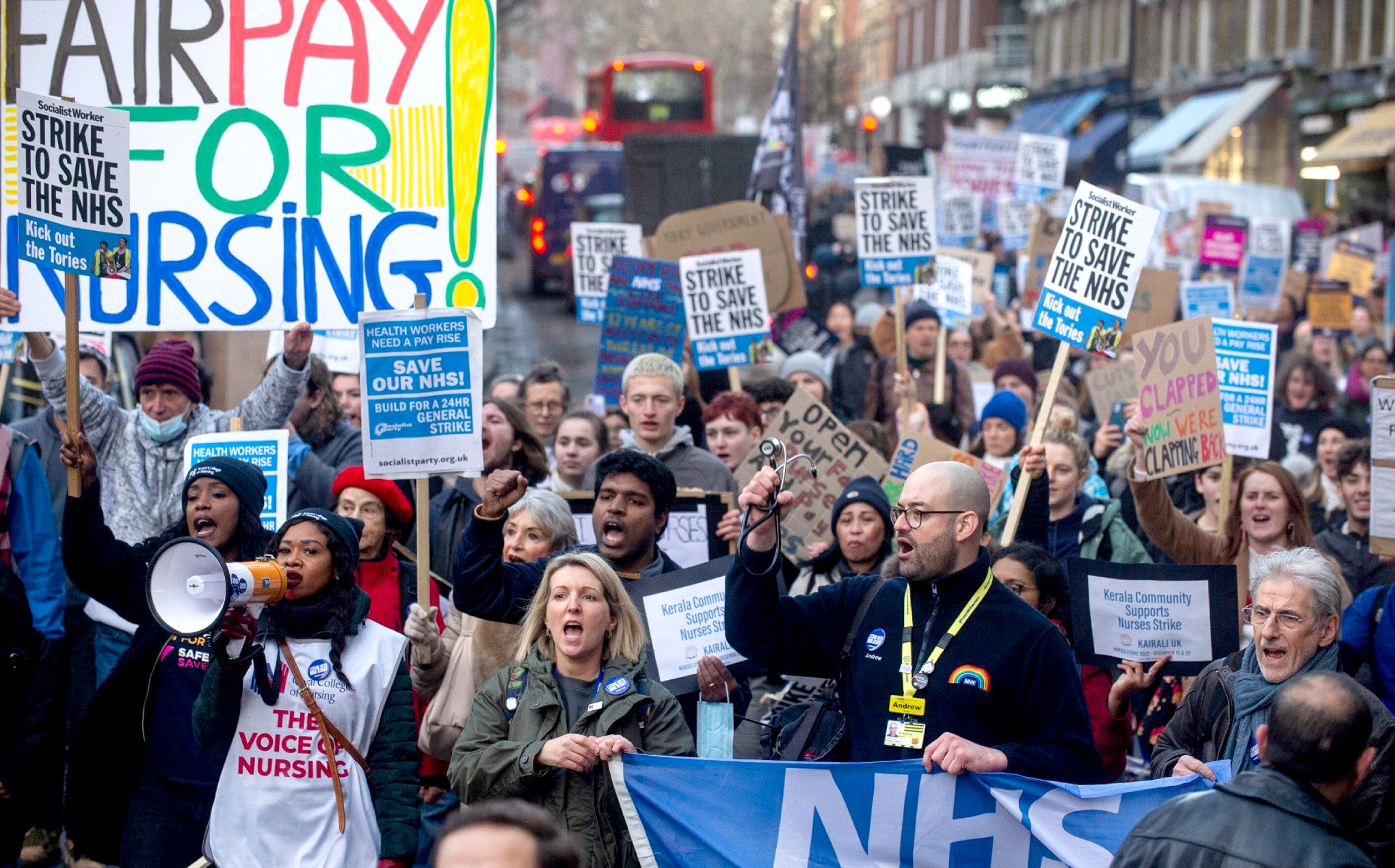Featured publication

Trust, the police and gender: London, you have a problem with women
Following a series of high-profile incidents of violence against women by serving London Metropolitan Police Officers, questions of standards and the public’s confidence in policing are in the spotlight. We find that women in England are more trusting in the police than men. But not in London. London is the only area in England where women’s overall trust in the police is lower than men, even when we control for age, income, political environment and crime levels.
Read more: Citations: …- Full, open access article: https://doi.org/10.1080/10439463.2024.2334009
- Feature in The Daily Mail: Revealed: The Met is the least trusted police force in England by women
- Feature in The Guardian: Only 40% of people in England trust their police force, research reveals
- Feature in World Is One News India: Is the UK losing trust in its police force?
- Pickering, S. D., & Dorussen, H., & Hansen, M. E., & Reifler, J., & Scotto, T., & Sunahara, Y., & Yen, D. (2024). London, you have a problem with women: Trust towards the police in England. Policing & Society, 348, 747–762. In press.
This research contributes towards the following UN Sustainable Development Goals:

Trust, risk and organic food: Evidence from the UK and Japan
Buying organic food is not just a matter of price or principle; it is also a question of trust.
We find that people who trust government institutions are more willing to pay a premium for organic food, particularly in Japan, where state certification plays a central role. In the UK, where certification is more fragmented, general social trust matters more for seeing organic food as aligned with personal values. Across both countries, individuals who are more comfortable with risk are consistently more open to paying extra for organic products. Together, these findings show that organic food markets rely not only on consumer preferences, but also on trust.
Read more: Citations: …- Full, open access article: https://doi.org/10.1007/s13165-026-00547-7
- Feature in The Conversation: Choosing to buy organic food depends more on trust than taste – new study
- Pickering, S. D., Hansen, M. E., & Sunahara, Y. Trust, risk and organic food: Evidence from the UK and Japan. Organic Agriculture.
This research contributes towards the following UN Sustainable Development Goals:

Academic Freedom as a Contested Public Good: Ideology, Trust and Public Attitudes in the UK and Japan
Debates about “academic freedom” are often framed as if everyone shares the same principle, with the only question being whether universities live up to it. We find that public support for academic freedom is strongly shaped by ideology and trust.
We asked people in the UK and Japan how much they support academic freedom in concrete scenarios: when research might offend, when universities work with controversial governments or companies, and when scholars face public criticism. Across both countries, right-leaning respondents support academic freedom, while left-leaning respondents place more weight on accountability and harm avoidance. Trust in scientists also matters: people who trust scientific experts are more willing to protect academic freedom. Our findings suggest that academic freedom is a contested public good: people agree on the slogan, but disagree on where to draw the lines: a key challenge for universities, funders and policymakers seeking to defend autonomy while maintaining public trust.
Read more: Citations: …- Full, open access article: https://doi.org/10.1111/polp.70115
- Feature in The Conversation: Political leanings affect views on academic freedom – new research
- Pickering, S. D., Hansen, M. E., & Sunahara, Y. Academic Freedom as a Contested Public Good: Ideology, Trust and Public Attitudes in the UK and Japan. Politics & Policy.
This research contributes towards the following UN Sustainable Development Goals:

Trust in Public Service Broadcasters: A comparison of the BBC and NHK
In this UK–Japan study, we examined how much people trust their national public broadcasters: the BBC in the UK and NHK in Japan. Over 19 months, we ran monthly surveys asking thousands of people how much they trust news from these public service providers, as well as from traditional media and social media.
We found that the BBC is still widely trusted in the UK, but that trust is sharply divided by politics. Conservative voters are much less likely to trust the BBC than Labour or Liberal Democrat supporters. In Japan, trust in NHK is more stable across the political spectrum, but it doesn’t stand out in the same way. Many Japanese respondents placed more trust in newspapers or even social media news than in NHK.
Public broadcasters still play a key role in the media landscape. But as our research shows, their credibility depends heavily on politics, structure, and national context.
Read more: Citations: …- Full, open access article: https://doi.org/10.1515/commun-2024-0184
- Feature in The Conversation: Trust in the BBC is heavily tied to political identity
- Feature in The Conversation: The BBC is a partisan battleground – why does Japan's NHK escape the same fate?
- Interview on the ABC: ABC Nightlife
- Pickering, S. D., & Sunahara, Y., & Hansen, M. E. (2025). Examining Trust in Public Service News Providers: A comparison of the BBC and NHK. Communications.
This research contributes towards the following UN Sustainable Development Goals:

Trust and Seaweed: Why the West is Missing Out
Seaweed is both a nutritional powerhouse and a climate-friendly crop, requiring no land, little freshwater and no fertilisers. In Asian countries, such as Japan, it's an everyday staple, but in western countries like the UK, it's still seen as exotic. Our study compares the two, revealing how trust, politics, education and risk-taking shape whether people eat seaweed, or whether they are likely to try it in future. The results show that while Japanese consumers embrace seaweed as part of tradition, UK consumers often face barriers like limited availability and unfamiliarity. Promoting seaweed in Western diets could benefit both people's health and the planet; but it will take more than sushi menus to make it mainstream.
Read more:
Citations: …- Full, open access article: https://doi.org/10.1016/j.foodqual.2025.105650
- Feature in The Conversation: Why are westerners so reluctant to eat seaweed? Our new study reveals the social and psychological reasons
- Pickering, S. D., & Iwasaki, M., & Masita, G., & Roskam, A., & Hansen, M. E., & Sunahara, Y. (2025). Who eats seaweed? Barriers and motivations in Japan versus the United Kingdom. Food Quality and Preference, 128, 105650.
This research contributes towards the following UN Sustainable Development Goals:

Trust and Immigration: Japan and the UK compared
Immigration is a contentious issue in both Japan and England, in part due to England's post-Brexit “points-based” system favoring highly skilled workers and Japan's traditionally restrictive migration policies. Yet the governments of both countries implicitly understand the need for immigrants to fill roles in various sectors, especially as demographic shifts pressure labour markets.
By developing a unique conjoint experiment, we explore preferences for immigrants across low and high skilled sectors and find surprisingly nuanced public attitude. English respondents show a greater variation in their preferences by job sector, particularly valuing immigrants in caring professions, likely reflecting the more vigorous and detailed public debate on immigration in Britain compared to Japan's more muted discussion.
Full, open access article: https://doi.org/10.1080/1369183X.2025.2545432 Citations: …Citation:
- Kawakami, R., Scotto, T. J., Dorussen, H., Pickering, S., Reifler, J., Sunahara, Y., Tago, A., & Yen, D. (2025). Who gets in? A conjoint analysis of labour market demand and immigration preferences in England and Japan. Journal of Ethnic and Migration Studies.
This research contributes towards the following UN Sustainable Development Goals:

Trust in the police across social divides in England
This article examines which groups in England are more or less likely to trust the police. Younger people from marginalised backgrounds, especially in London, report the lowest levels of trust. At the same time, some less-expected groups, such as White working-class men outside London, also show lower trust, while older working-class women tend to show more. These findings highlight how trust in the police is unevenly distributed, and point to the need for stronger community engagement and training tailored to different groups if confidence in policing is to be rebuilt.
Full article: https://doi.org/10.1080/10439463.2025.2529300Citations: … Citation:
- Tura, F., Pickering, S., Hansen, M. E., & Hunter, J. (2025). Intersectional inequalities in trust in the police in England. Policing and Society, 1-15.
This research contributes towards the following UN Sustainable Development Goals:

Trust, religion and vaccination: The role of religion and COVID-19 vaccine uptake in England
Existing research has found a link between religious beliefs and vaccine hesitancy. This analysis used data from a survey of over 12,000 respondents in England and finds that respondents who identify as being part of the Church of England or Methodist denominations have had significantly more COVID-19 vaccinations. However, Pentecostal and Muslim respondents have had significantly fewer COVID-19 vaccinations.
Clearly, public health bodies need to engage with religious leaders. Communication strategies need to be tailored to specific religious groups. Trust plays a key factor, so we need to ensure that religious groups are able to trust healthcare institutes.
Read more: Citations: …- Full, open access article: https://doi.org/10.1016/j.vaccine.2024.04.006
- Feature in The Conversation: Religion and COVID-19: methodists and Church of England followers more likely to have been vaccinated than Muslims and Pentecostals
- Hansen, M. E., & Pickering, S. D. (2024). The role of religion and COVID-19 vaccine uptake in England. Vaccine (42)13: 3215-3219.
This research contributes towards the following UN Sustainable Development Goals:

Trust, doctors, nurses and strikes
How much do the public support striking nurses and junior doctors? It turns out people are generally more supportive of these healthcare workers striking than other professionals like postal workers or teachers. Support levels vary by political affiliation, ideology, and trust in the NHS, with non-Conservative, left-leaning individuals, and those with high trust in the NHS more likely to back the strikes. These findings suggest strategic directions for increasing public support for healthcare workers' strikes.
Full, open access article: https://doi.org/10.1111/nin.12637Citations: … Citation:
- Hansen, M. E., & Pickering, S. D. (2024). From Plaster Casts to Picket Lines: Public Support for Industrial Action in the National Health Service in England. Nursing Inquiry, 31(3), e12637.
This research contributes towards the following UN Sustainable Development Goals:

Trust and waiting for health-care
Waiting times for healthcare in the UK are at an all time high. Does this affect people's trust in the NHS? Our survey of 7,415 people suggests not. Even when waiting times in Accident and Emergency rooms are long, or when there is a long delay in referrals for cancer treatment, people still trust the NHS. However, members of ethnic minorities and people who voted for the Conservative Party do tend to trust the NHS less. If the NHS wants to build trust, then it needs to look to these two key groups.
Read more: Citations: …- Full, open access article: https://doi.org/10.1016/j.puhip.2024.100484
- Feature in The Conversation: Sky-high waiting times don’t make people trust the NHS any less – why that’s potentially bad news for Rishi Sunak
- Dorussen, H., & Hansen, M. E., & Pickering, S. D., & Reifler, J., & Scotto, T., & Sunahara, Y., & Yen, D. (2024). The Influence of Waiting Times and Sociopolitical Variables on Public Trust in Healthcare: A Cross-Sectional Study of the NHS in England. Public Health in Practice, 7(100484), 1-7.
This research contributes towards the following UN Sustainable Development Goals:

Trust and human poo
Humanity needs food, and to grow that food, we need fertilisers. But fertilisers present enormous environmental impact. Animal manure causes nitrate pollution in soil, groundwater and the atmosphere. Whereas artificial fertilisers account for 1-2 % of global energy consumption and 1.4% of global CO2 emissions.
Human Excretion Based Fertiliser (HEBF), or fertilisers based on human poo, may offer a solution. But we need to know how socially acceptable this solution is. Based on surveys in Japan and England, we find that the Japanese are more accepting of using HEBF for food production, with fewer health concerns, compared to the English. However, English respondents are more open to using HEBF in public parks. We also notice strong gender differences.
Read more: Citations: …- Full, open access article: https://doi.org/10.1016/j.wmb.2024.08.002
- Feature in The Conversation: Human manure or ‘nightsoil’ makes great crop fertiliser – but attitudes to poo-grown produce differ drastically
- Pickering, S., & Gökçe, Ö., & Hanna, D., & Knell, M., & Lee, D., & Scales, M., & Zeinalabidin, M. & Sunahara, Y., & Hansen, M. E. (2024). Public perceptions of human excretion-based fertiliser in England and Japan. Waste Management Bulletin (2)4: 11-20.
This research contributes towards the following UN Sustainable Development Goals:

Trust and health data
Background/Aims
Public attitudes towards the NHS sharing health records vary significantly depending on who the information is shared with and how it is described. In a survey conducted across England, most people felt comfortable with the NHS sharing their personal health information with hospitals and GPs, particularly when the word 'information' was used instead of 'data'. However, over half of respondents objected to sharing records—even anonymised—with pharmaceutical companies for research, or with local councils. This suggests that people are more open to sharing their health records when they perceive a direct personal benefit, and interestingly, anonymisation alone does not necessarily reassure the public. These insights can help shape clearer and more effective public communication about health data sharing.
Citations: … Citation:
- Yen, D., & Dorussen, H., & Pickering, S., & Hansen, M. E., & Scotto, T., & Reifler, J. (2025). Public attitudes towards disclosing personal and anonymous health-related data and information. British Journal of Healthcare Management (31)1.
This research contributes towards the following UN Sustainable Development Goals:

Trust and AI in Parliament: Who makes the decisions?
Artificial intelligence is edging into parliaments, with tools being tested to help MPs analyse legislation, draft questions, or manage the flood of information they receive. But are citizens ready for this? Our surveys in the UK and Japan reveal a clear divide: people are broadly open to MPs using AI for support, yet deeply opposed to ceding democratic decisions to machines. Trust, politics, age and gender all shape these attitudes. Younger men, and those more optimistic about AI, are the most supportive. Older respondents, women, and those who fear AI are far more sceptical. Cross-national differences are equally revealing: in the UK, right-leaning voters are more open to parliamentary AI, while in Japan support comes more from the left. The message is clear: AI can advise, but it cannot rule. For parliaments, legitimacy depends on keeping humans visibly in the loop.
Read more: Citations: …- Full, open access article: https://doi.org/10.1093/pa/gsaf050
- Feature in The Conversation: Is it ok for politicians to use AI? Survey shows where the public draws the line
- Pickering, S. D., & Hansen, M. E. & Sunahara, Y. (2025). Democracy by Algorithm? Public Attitudes Towards AI in Parliamentary Decision-Making in the UK and Japan. Parliamentary Affairs.
This research contributes towards the following UN Sustainable Development Goals:

Trust in Doctors and Scientists: The Roles of Faith, Politics, Education and Gender
Science underpins responses to global challenges, from developing vaccines to tackling climate change. But trust in science isn’t evenly shared across society. Using survey data from more than 11,000 people in England, we compared attitudes towards medical doctors and university scientists. Our findings show that education fosters greater trust, while right-leaning ideology predicts lower trust in both groups. Religion also matters: some faith communities express lower trust, though the strongest effect came from respondents who selected “Prefer not to say” on religion: a group consistently less trusting of experts. Women report lower trust in doctors, though not in scientists, while ethnic minorities also show reduced trust overall. These patterns reveal that trust in science is not one-size-fits-all: who the messenger is, and who the audience are, both shape how expertise is received.
Read more: Citations: …- Full, open access article (COMING SOON): https://doi.org/10.1177/09636625251386562
- Feature in LSE Religion and Global Society: Why those who ‘prefer not to say’ trust experts the least: faith, science, and silence
- Pickering, S. D., & Hansen, M. E., & Dorussen, H., & Reifler, J., & Scotto, T. J., & Sunahara, Y., & Yen, D. (2025). Trust in Scientists and Doctors: The Roles of Faith, Politics, Education and Gender. Public Understanding of Science.
This research contributes towards the following UN Sustainable Development Goals:

Tracks of Solidarity: Public Opinion and Railway Worker Strikes
In this UK-focused study, we examine public attitudes toward railway worker strikes using data from a seven-wave survey of thousands of respondents. Rather than seeing support or opposition as uniform, we find that public opinion on strike action is shaped by perceptions of fairness, labour solidarity, and political identity.
Our analysis reveals that support for railway strikes varies notably with respondents’ socio-political orientations, trust in unions, and views on labour market institutions. The findings demonstrate how complex and conditional public backing for industrial action can be, even in a politically salient sector like railways where service disruption prompts widespread attention.
Read more: Citations: …- Full article: https://doi.org/10.1111/irj.70021
- Pickering, S. D., & Hansen, M. E. (2025). Tracks of Solidarity: Public Opinion and Railway Worker Strikes. Industrial Relations Journal. https://doi.org/10.1111/irj.70021
This research contributes towards the following UN Sustainable Development Goals:
Our Sponsors
This project is sponsored by the Japan Society for the Promotion of Science (JSPS, grant reference JPJSJRP 20211704) and the UK Research and Innovation's Economic and Social Research Council (UKRI-ESRC, grant reference ES/W011913/1).
